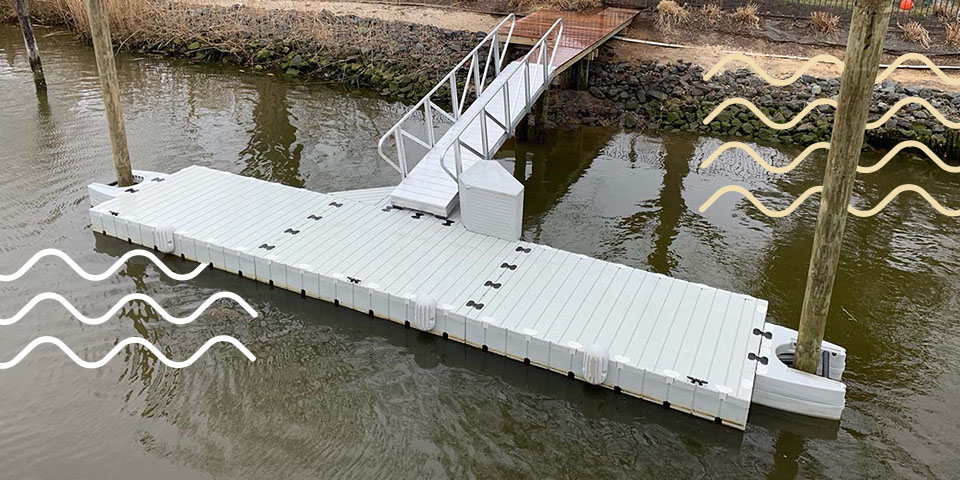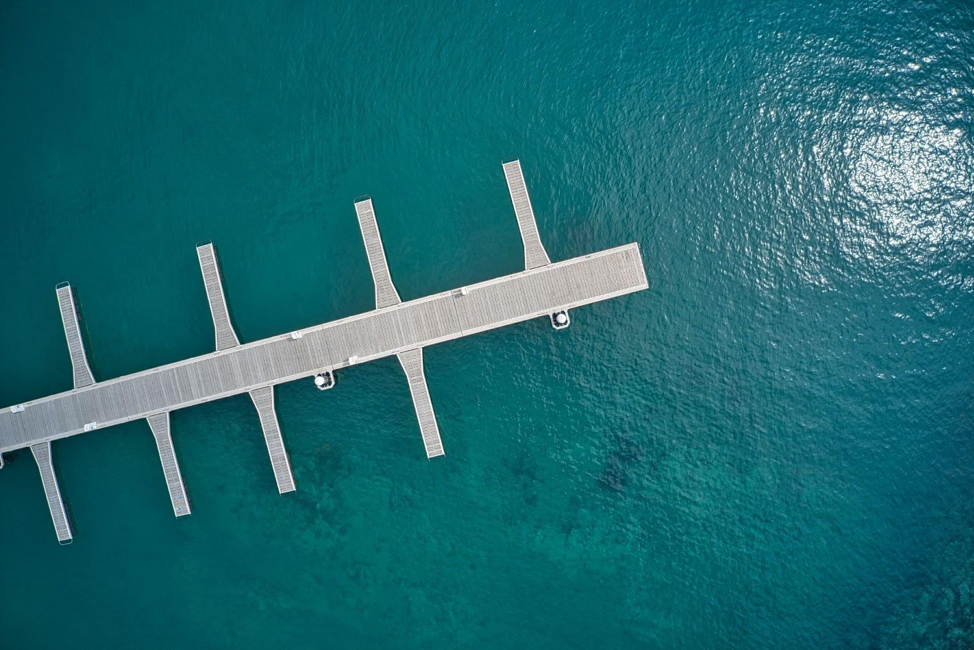Floating Docks: The Smart Selection for Modern Beachfront Living and Leisure
Floating Docks: The Smart Selection for Modern Beachfront Living and Leisure
Blog Article
Floating Docks: The Suitable Choice for Versatile Water Gain Access To
Floating docks present an engaging solution for a range of water gain access to requires, offering adaptability that transcends standard mooring alternatives. Their ability to adapt to rising and falling water degrees while making certain stability and security makes them specifically advantageous for both entertainment and commercial applications. Additionally, the modular nature of floating docks assists in modification, satisfying details requirements. The nuances of setup and upkeep, along with the array of applications, necessitate a closer assessment to completely appreciate their potential benefits and effects for river gain access to methods.
Benefits of Floating Docks
Floating docks offer countless benefits that enhance water accessibility for different applications. Their ability to fluctuate with altering water degrees makes them especially advantageous in settings with changing tides or seasonal variations. This versatility ensures that vessels can conveniently moor without problem for the water's depth, providing a reliable platform for recreational, business, and industrial usages.
Furthermore, floating docks are frequently created from durable materials that withstand deterioration, making them suitable for long-term usage in marine atmospheres. Their setup is typically less intrusive than standard set docks, reducing the environmental effect and facilitating quicker deployment (floating dock company). This adaptability allows for simpler relocation or reconfiguration according to individual requirements or ecological adjustments
Safety and security is an additional vital advantage; floating docks can offer steady gain access to for individuals boarding or disembarking from watercrafts and lower the threat of crashes related to unsteady surfaces. They can be developed to accommodate a variety of devices, such as fenders and cleats, boosting functionality. In general, floating docks stand for an effective solution for boosting water accessibility across varied fields while promoting safety and security and ecological sustainability.

Kinds Of Floating Docks
Various sorts of floating docks deal with different demands and environments, each made with particular attributes to maximize capability. The most typical kinds include modular docks, which consist of interlocking sections that enable very easy customization and growth. These docks are ideal for entertainment use, as they can be tailored to fit different watercraft dimensions and water conditions.
Another preferred option is the stationary floating dock, which stays secured in place but floats with altering water degrees. floating docks. This kind is specifically matched for locations with very little tidal changes, supplying secure accessibility for fishing or swimming. Furthermore, there are drive-on docks, which include a sloped layout that permits watercrafts to conveniently drive on and off, making them ideal for individual boat and smaller sized vessels
For business applications, sturdy floating docks are readily available, constructed from reinforced materials to endure significant loads and severe marine settings. Environmentally friendly floating docks utilize lasting products and styles to reduce environmental impact, often incorporating attributes like greenery to support neighborhood wild animals. Comprehending the various kinds of floating docks makes sure that individuals can select the most proper service for their specific demands.
Installment Process Overview
An effective setup of floating docks requires mindful planning and attention to information to guarantee optimum efficiency and safety. The initial step entails examining the site problems, consisting of water deepness, present, and possible challenges. This analysis informs the selection of the ideal dock materials and layout tailored to the certain environment.
Following, acquiring needed permits is essential, as numerous territories have regulations pertaining to construction on water bodies. The setup can continue once authorizations are safeguarded. Begin by preparing the structure, which might involve anchoring systems or pilings tailored to the dock kind and neighborhood problems.
Complying with review the structure configuration, put together the dock sections according to manufacturer specs. Make certain that all components are safely secured and lined up to endure ecological stresses. Position the dock in the marked area, ensuring it is level and secure.

Upkeep Tips and Ideal Practices
After the installment process is complete, ongoing upkeep plays an essential duty in making sure the durability and functionality of floating docks. Normal evaluations ought to be performed to determine any kind of signs of wear, damage, or deterioration - floating dock builder. Check for any type of loosened fittings, splits, or separation in the dock areas, as these can jeopardize structural integrity
Cleaning the dock is important to eliminate debris, algae, and various other accumulation that can affect its look and security. Make use of a gentle stress wash occasionally to maintain sanitation without triggering damage to the surface area. Additionally, using a protective sealant every few years can help improve longevity and withstand environmental wear.
Take notice of the mooring lines and anchors, guaranteeing they are secure and cost-free from corrosion. Replace any kind of degraded elements without delay to prevent threats. Seasonal changes might likewise be essential; during extreme climate problems, rearranging or reinforcing the dock can protect against damage.
Applications for Floating Docks
Floating docks serve a plethora of applications, dealing with both commercial and entertainment demands. In recreational settings, they offer smooth accessibility to rivers for tasks such as boating, angling, and swimming. Their adjustable nature permits setup in varying water levels, guaranteeing secure and secure accessibility no matter tidal fluctuations.
Commercially, floating docks are important for marinas and waterside services. They promote the docking of vessels, making it possible for reliable packing and unloading of goods. Their modular design allows for easy expansion or reconfiguration to fit transforming organization needs, making them excellent for watercraft services, excursion procedures, or fishing charters.
In addition, floating docks are used in environmental applications such as water study and habitat reconstruction. They can function as platforms for clinical researches, keeping track of water quality, or conducting wildlife surveys without disturbing delicate ecological communities.
In commercial contexts, floating docks are used in building projects, providing accessibility to hard-to-reach areas for equipment and employees. Their adaptability, longevity, and very little influence on the environment make them an ideal choice for a wide array of applications, enhancing both functionality and access in various water-based environments.
Verdict
In verdict, floating docks represent an optimal remedy for varied water accessibility requires, owing to their flexibility, resilience, and modular design. Floating docks see this website offer as a beneficial asset for recreational, industrial, and environmental projects, guaranteeing trustworthy accessibility to rivers and promoting lasting methods in water settings.
Floating docks present a compelling service for a variety of water gain access to needs, providing flexibility that goes beyond traditional mooring options.Floating docks official source deal many benefits that boost water gain access to for various applications. In general, floating docks stand for an efficient option for enhancing water gain access to across diverse fields while advertising security and environmental sustainability.
Another popular choice is the stationary floating dock, which remains anchored in place but drifts with altering water levels.In verdict, floating docks stand for an optimum solution for varied water access requires, owing to their flexibility, longevity, and modular style.
Report this page